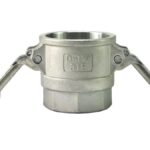Thinking about Driveway Upgrade but unsure where to start? A new driveway can instantly boost your home’s curb appeal and add lasting value-but the cost can catch many homeowners off guard. With so many options in materials, styles, and contractors, it’s easy to feel overwhelmed.
The good news? With the right guidance, planning your upgrade doesn’t have to be stressful. This article breaks down what affects driveway costs and helps you make a smart, confident decision.
Keep reading to learn what to expect-and how to get the best value for your investment.
Understanding the Costs Involved in a Driveway Upgrade
The cost of paving a driveway depends on the material you choose. Asphalt costs between $5 and $13 per square foot, with an average of $8 per square foot, and lasts 15 to 30 years with regular maintenance. Concrete is more expensive, ranging from $6 to $20 per square foot, with an average of $10 per square foot, and lasts 20 to 40 years. Gravel is the cheapest choice at $2 to $10 per square foot, with an average of $6 per square foot, though it needs more upkeep.
Pavers are the most expensive choice, costing up to $30 per square foot, with an average of $15 per square foot, but they give a high-end look and great durability. The size and shape of your driveway will affect the price, with curved or large designs costing 10% to 30% more. Labor costs make up 50% of the total price and can vary depending on the material and complexity of the job.
Factors Influencing Driveway Upgrade Costs
When upgrading your driveway, several factors influence the total cost. The material you choose plays a significant role, with asphalt being more affordable than concrete. However, some homeowners prefer premium options like pavers or stamped concrete for their enhanced aesthetic value.
The size and thickness of your driveway will also affect pricing. Larger driveways or those needing extra thickness for heavy vehicle support will increase expenses. Additionally, geographic location impacts labor costs, with urban areas charging more than rural ones, and if repairs or removal of the existing driveway are necessary, your budget may rise further.
Comparing Different Driveway Materials
When considering a driveway upgrade, it is essential to weigh the pros and cons of various materials:
Asphalt Driveways
Asphalt driveways are often a budget-friendly first choice. It is faster to install and more affordable than other materials. However, they require regular maintenance, including seal coating every few years.
Concrete Driveways
Concrete driveways are known for their durability and elegance. They offer a long lifespan but come with a higher initial cost. Investing in a concrete driveway replacement can enhance your home’s aesthetic appeal.
Brick or Paver Driveways
Brick or paver driveways are beautiful but often the most expensive choice. They need skilled labor for installation, which adds to the cost. But with proper care, they can last for decades.
Budgeting for Your Driveway Upgrade
To start budgeting for your driveway upgrade, it’s important to know the average costs involved. Begin by getting quotes from at least three contractors to ensure an accurate estimate for your project. Also, consider long-term costs like maintenance and how long you plan to stay, and set aside 10-20% of your budget for unexpected expenses.
Ready to Take the Next Step?
Knowing what goes into the cost of a driveway upgrade helps you plan better and avoid surprises. With the right material and a clear budget, you’re set to make a smart choice that adds real value to your home. Start comparing options, gather quotes, and move forward with confidence.







